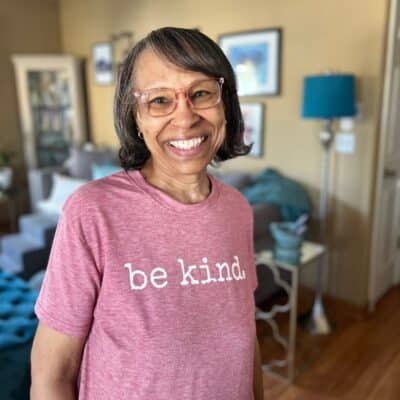It’s the Little Things That Matter
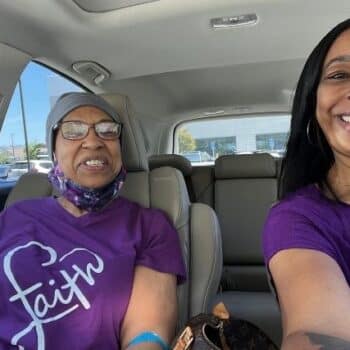
I had to change my focus and my actions. Yes, my mom has Vascular Dementia, but she is not a disease, she has a disease.
December 18, 2024
Janet is a caregiver to her mom who was diagnosed with Alzheimer’s in 2021 and later was correctly diagnosed with Vascular Dementia in 2023. She documents their journey via her Instagram page @shenanigans_of_karen_and_gary
Receiving a diagnosis of dementia felt like an emotional bomb going off, with scattered shrapnel of anxiety, depression, anger, confusion, denial, resentment, and fear. I knew nothing about dementia other than the stereotype of forgetting, wandering, and aggression. But my mom didn’t fit the stereotype; sure, she was forgetting things and repeating herself a lot, but she was also very active, independently managing her personal hygiene, completing tasks around the house, and finding joy in helping others.
She comes from a family of 11 children and she’s always valued her independence. She started working at the age of 13 and would give her mother money to help with household expenses and to care for her siblings. She was a proud single parent who worked diligently to give me the world, so in my mind, receiving a dementia diagnosis meant that my mom’s need for independence would diminish, but boy was I wrong.
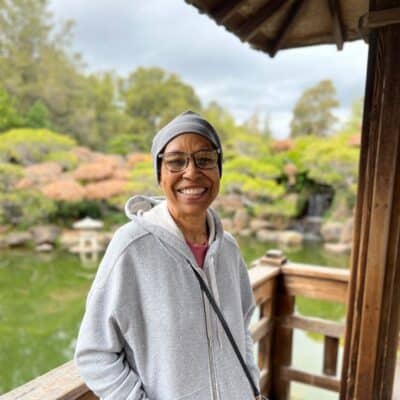
In 2001, two decades before she received an initial diagnosis of Alzheimer’s, her doctor told her she had Multiple Sclerosis and was having seizures, and I took on the role of caregiver. We later found out that she does not have Multiple Sclerosis or seizures. My mother has psychogenic non-epileptic seizures (PNES) which are a type of functional neurological disorder brought on by emotional stress. Then, in early 2024 we received an updated diagnosis of Vascular Dementia — not Alzheimer’s. On more than one occasion our worlds have been rocked by a hard hitting diagnosis; our lives on pause. The independence I had to travel, date, engage in social activities, and figure out my goals and dreams was halted because my mom needed me. It felt unfair and devastating. So much of my energy was focused on dementia, a disease that is cruel and relentless, that I was forgetting about my mom, the woman who had that high need for independence. I met her needs for healthcare, medication management, advocacy, and finances, but I couldn’t meet her need to maintain her dignity and independence.
Here are some changes I made to better support my mom and shift my focus from the disease.
Changed My Thinking
I had to change my focus and my actions. Yes, my mom has Vascular Dementia, but she is not a disease, she has a disease. My mom is still a woman; a human being who wants to be respected, and who wants to age with dignity. I remember hearing her introduce herself like this: “Hello, my name is Karen and I have dementia.” I cringed because it told me that we had given dementia too much power over who my mom is. Dementia is horrible, and over time I know it will rob me of the mother I’ve always known, but as of today, she’s still here and she deserves to be treated with dignity and respect, not like a disease.
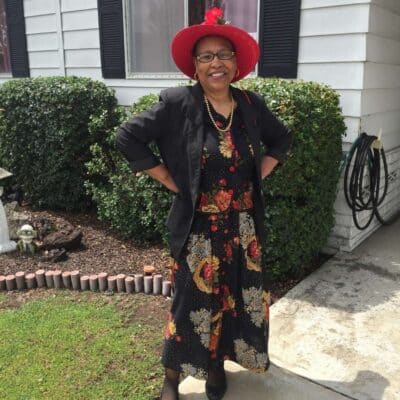
If She Can She Will
Safety is of the utmost importance when your loved one is ill, and probably even more so if they have dementia. Because of the neurological and physical changes, I recognized that during my caregiver journey I needed to try to be there every minute. But in doing so I’ve enabled her, as well as stolen her dignity. I remember one day my mom was getting ready to take out the trash and I jumped up to stop her — what if she falls or forgets what she’s doing and then wanders from the home. What I didn’t realize was that by doing everything for her, or stopping her from doing things, I was making it hard for her to remember how to do things. Now I move the outside trash cans closer to the house and I watch from the window to ensure she comes back inside. It’s a win win because mom feels like she’s contributing around the house and it supports her brain in remembering.
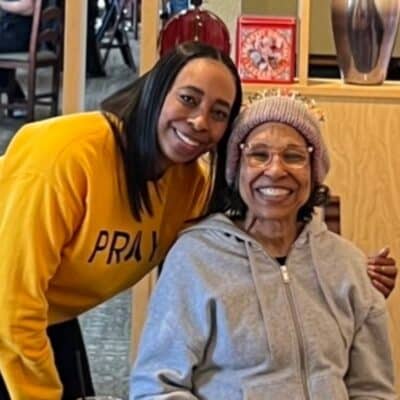
It’s the Little Things That Matter
Dementia has a lot of commonalities, but it’s also very different for each person. My mom’s short-term memory is heavily impacted, but she’s still mobile and likes to keep busy. Everyday she shares with me how frustrated she feels because she can’t do everything like she used to. And so I’m intentional about finding things that she can do — helping me create a grocery list, for example. Instead of asking her what she wants from the store (because that’s too broad) she opens cabinets and the refrigerator while I mention certain items to see if we need more. When we’re putting away groceries, she takes everything out of the bags and hands me items to put away — or I’ll show her where to put them. When deciding what to fix for lunch, I’ll give her two options to choose from; the same with choosing her clothes.
I’ve learned that by staying present, flexible, and seeing my mom as a person and not a disease, that our days are a little less heavy because I’m not only meeting her health care needs, but I’m also supporting and encouraging her independence for as long as possible.
